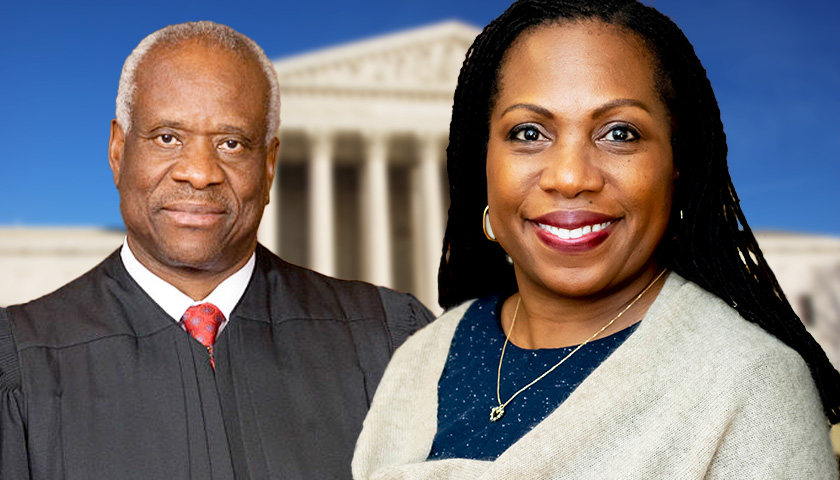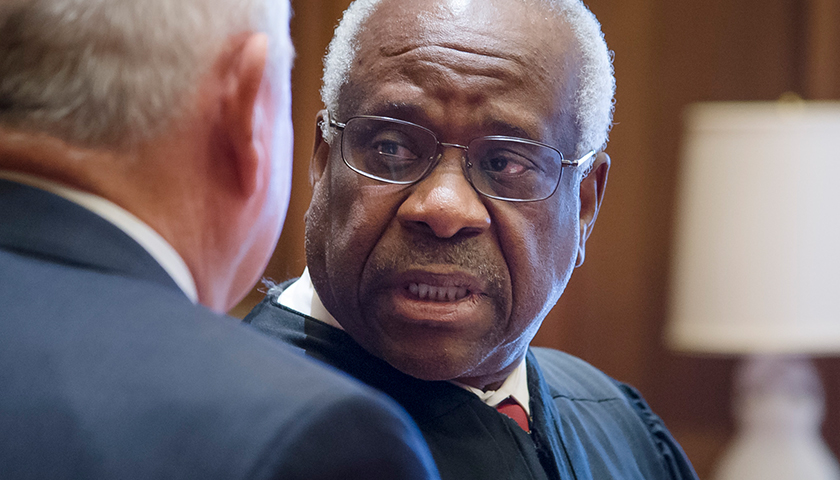Observers of the Supreme Court should ask themselves what’s the more preposterous mainstream media mindmeld: whether Justice Clarence Thomas should recuse himself or resign over his wife’s political activism, or the legal brilliance of the Supreme Court Justice-to-be, Judge Ketanji Brown Jackson.
Truth be told, what we have here is the myrmidon media’s mockery of the most brilliant Supreme Court justice ever, one they have derisively dismissed as a lawn jockey of the Right, a lackey of the late Justice Antonin Scalia, someone who will be tutored on race by future Justice Jackson, and now a pawn or puppet of his wife. The actual contrast between the two judges could hardly be greater. Of course, neither justice should be held completely responsible for the allies he attracts.
Read More

